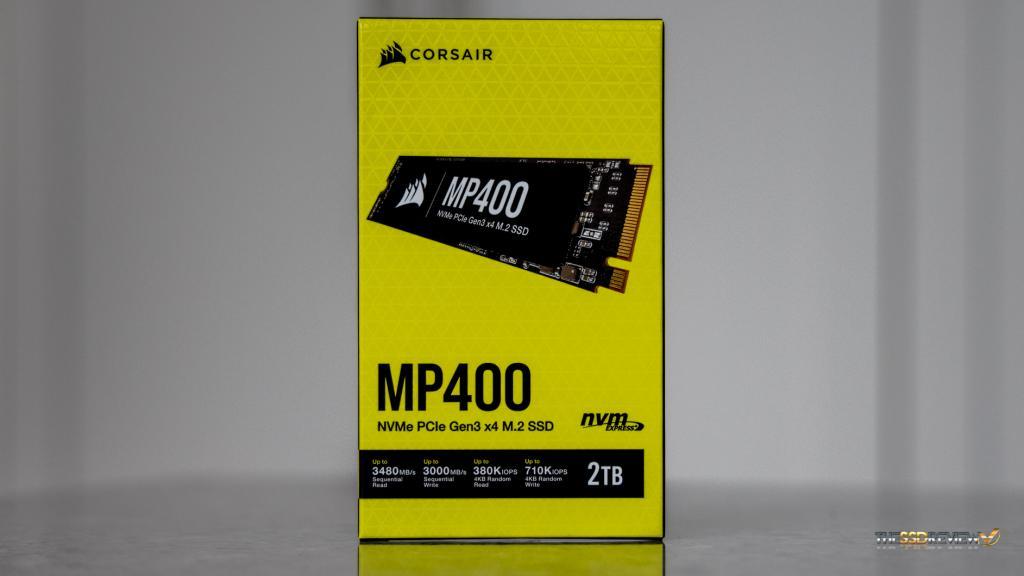One of the most diverse and inclusive names in the PC business is Corsair. Their Force Series SSDs were first introduced in 2010, but wait, Corsair’s gaming portfolio started way back in 1994. Corsair has always been a part of our system builds and my personal favorite to this day is their iCue software, although a quick look at our Test Bench systems will show that we have consistently trusted Corsair peripherals for years now. Today, we are reviewing the Corsair MP400 NVMe SSD.
The MP400 has been introduced by Corsair as being of excellent value, while at the same time being high performing and high capacity, with the 8TB version expected to be introduced sooner than later. It’s release timing couldn’t be better as we seem to always get caught up in the latest and greatest which can definitely be said of PCIe 4.0 as of late. This is characteristic of the industry and has been since we moved to PCIe from SATA 3; SATA 3 getting lost in the crowd although the need for SATA 3 SSDs today is still very strong.
The Corsair MP400 is a M.2 PCIe 3.0 x4 (four lane) NVMe SSD that uses the NVM Express 1.3 protocol and is of the 2280 form factor (80mm). It is now available in capacities of 1,2 and 4TB with the 8TB version being shown as being available in 2-4 weeks on Corsair’s website. Performance is variable with all having read speeds of 3480MB/s, with the 2,4 and 8TB having write data throughput of 3000MB/s, while the 1TB version drops its write speed to 1880MB/s.
 IOPS will also reach as high as 610K read and 710K write for the 4/8TB versions, however the 2TB version we are testing today is expected to max out at 380K read and 560K write IOPS at low 4k random write data transfer. This is the result of the industry moving to the newest QLC NAND flash memory.
IOPS will also reach as high as 610K read and 710K write for the 4/8TB versions, however the 2TB version we are testing today is expected to max out at 380K read and 560K write IOPS at low 4k random write data transfer. This is the result of the industry moving to the newest QLC NAND flash memory.
The Corsair MP400 is built on a black M.2 PCB that weights less than 10g and pretty much looks like a stick of gum. It contains the Phison PS5012-E12S NVMe controller and uses Micron’s latest 96-layer QLC NAND flash memory, much as the Sabrent Q SSDs do. It has AES 256-bit encryption and comes with a 5-year warranty.
The PCB (printed circuit board) is single sided for the 1/2TB capacities and double sided for the 4/8TB capacities. This SSD also has a NANYA DRAM buffer which is sized at 1GB DRAM per 1TB capacity.
Checking current pricing at Amazon, we find the 1TB at $137 and the 2TB at $288 with no availability for the 4/8TB capacities at the time of our report. Checking Corsair directly, we can see the 4TB priced at $754.99 and the 8TB at $1699 with a lead time for both.
 The SSD Review The Worlds Dedicated SSD Education and Review Resource |
The SSD Review The Worlds Dedicated SSD Education and Review Resource | 
